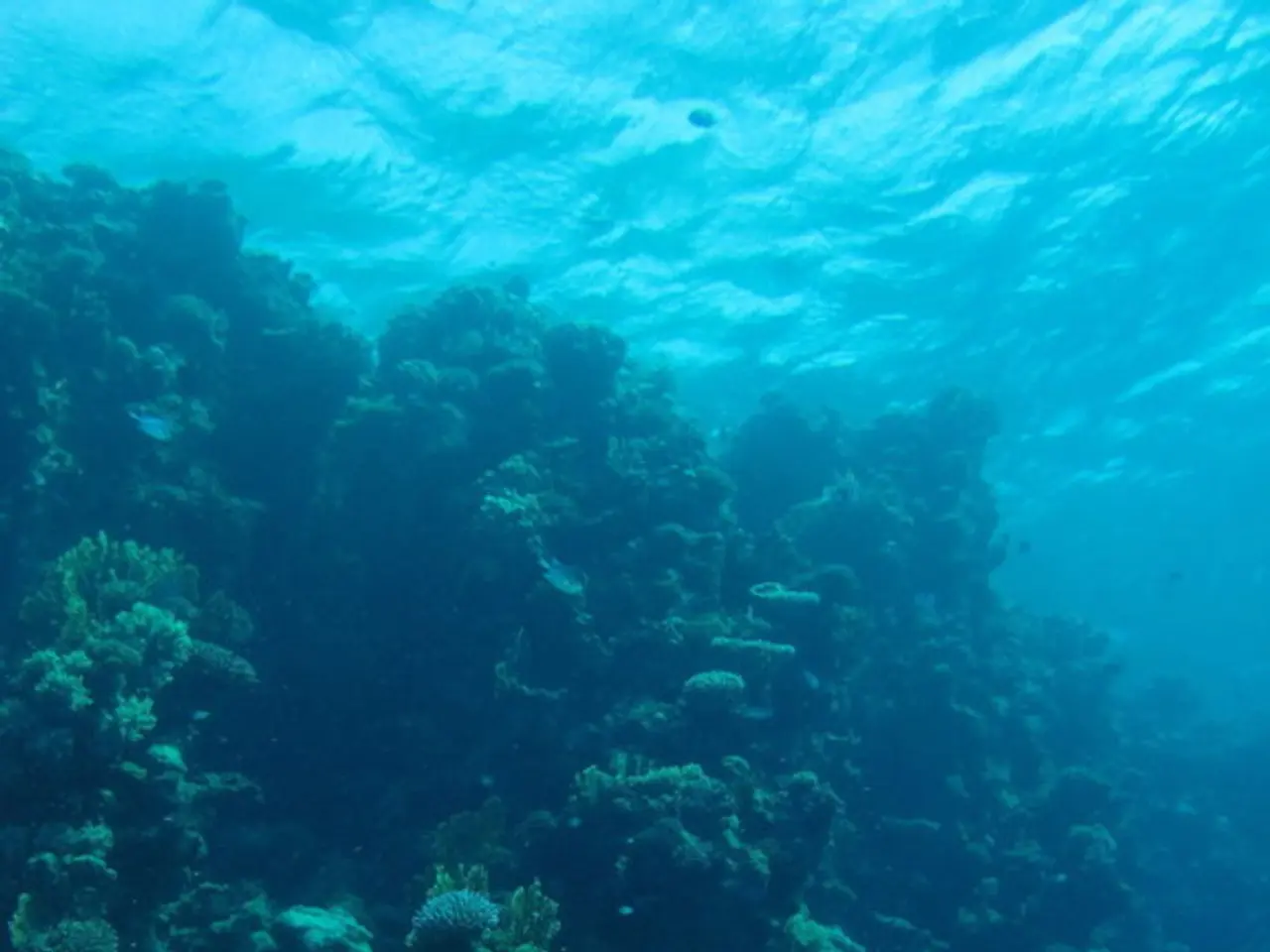Deep-sea researchers uncover unsettling facts within the abyssal depths of the Mediterranean's deepest trench.
The Mediterranean Sea, a bustling hub of maritime traffic and dense fishing activity, has become a focal point of global environmental concerns due to the growing problem of marine pollution. The issue is vast, even if it is not directly visible, and cannot be ignored.
Recent studies have revealed the extent of the plastic crisis in the Mediterranean, with the ocean floor showing signs of direct human activity, including boat traffic and evidence of boat-dumped rubbish. The Calypso Deep in the Ionian Sea, a closed depression with weak currents, has become a repository for this waste, with debris patches persisting in the deep, unable to escape the confines of the trench's steep walls.
The sources of oceanic plastic waste discovered at the Calypso Deep are both terrestrial and marine. Plastics reach the deep seabed via multiple routes, including coastal origin, long-distance transport, direct dumping, rivers, wind, and intense ship traffic. This complex mix of waste accumulates in the trench due to its geography and weak currents.
Canals, a leading voice in the fight against marine plastic pollution, urges all sectors of society, including scientists, communicators, journalists, influencers, to take responsibility for this growing problem. Tackling the issue requires a combination of upstream waste control, maritime regulation, and emerging filtering technologies.
Reducing plastic input from coastal sources by improving waste management and controlling runoff is crucial. Preventing illegal dumping by enforcing maritime waste disposal regulations is another key measure. Promoting the use of innovative filters and cleanup technologies, such as bio-inspired smart filters modeled on plant roots, which can grab microplastics from water, is also essential.
Raising awareness of the critical harm plastic pollution causes to marine ecosystems, especially slow-recovering deep-sea communities, is another important step. Broader sustainable ocean economy initiatives that control pollution inputs and promote ocean health are also needed.
However, addressing the problem in the deep ocean floor of the Mediterranean trench is a difficult issue due to its remote location. The ocean's remote depths remain largely out of sight, creating an environmental blind spot. Canals states that "not a single inch of the Mediterranean is clean."
In conclusion, the plastic pollution in the Calypso Deep is a complex issue that requires a collective effort from local communities to global governments. It is a call to action for all of us to take responsibility for the health of our oceans and work together to find solutions to this pressing environmental challenge.
[1] Canals, M. (2021). Deep-sea litter in the Mediterranean: A review of the sources, pathways, and impacts. Marine Pollution Bulletin, 161, 113385. [2] Canals, M., & Duarte, C. M. (2019). Plastic waste in deep-sea ecosystems: A review of the global distribution, sources, and impacts. Reviews in Fish Biology and Fisheries, 29(4), 617-637. [4] Canals, M., & Duarte, C. M. (2020). The use of bio-inspired smart filters for microplastics removal from water. Marine Pollution Bulletin, 156, 113049.
- The complex problem of marine plastic pollution, including its presence in the deep seabed of the Calypso Deep in the Mediterranean Sea, is a call for collaboration across various scientific disciplines, such as environmental science, health-and-wellness, fitness-and-exercise, climate-change, and environmental-science.
- To combat marine plastic pollution effectively, it's important for scientists, communicators, journalists, influencers, and policymakers to work together, utilizing innovative solutions like bio-inspired smart filters modeled on plant roots, developing upstream waste control strategies, and strengthening maritime regulations, as emphasized by Canals in studies like [1], [2], and [4].








